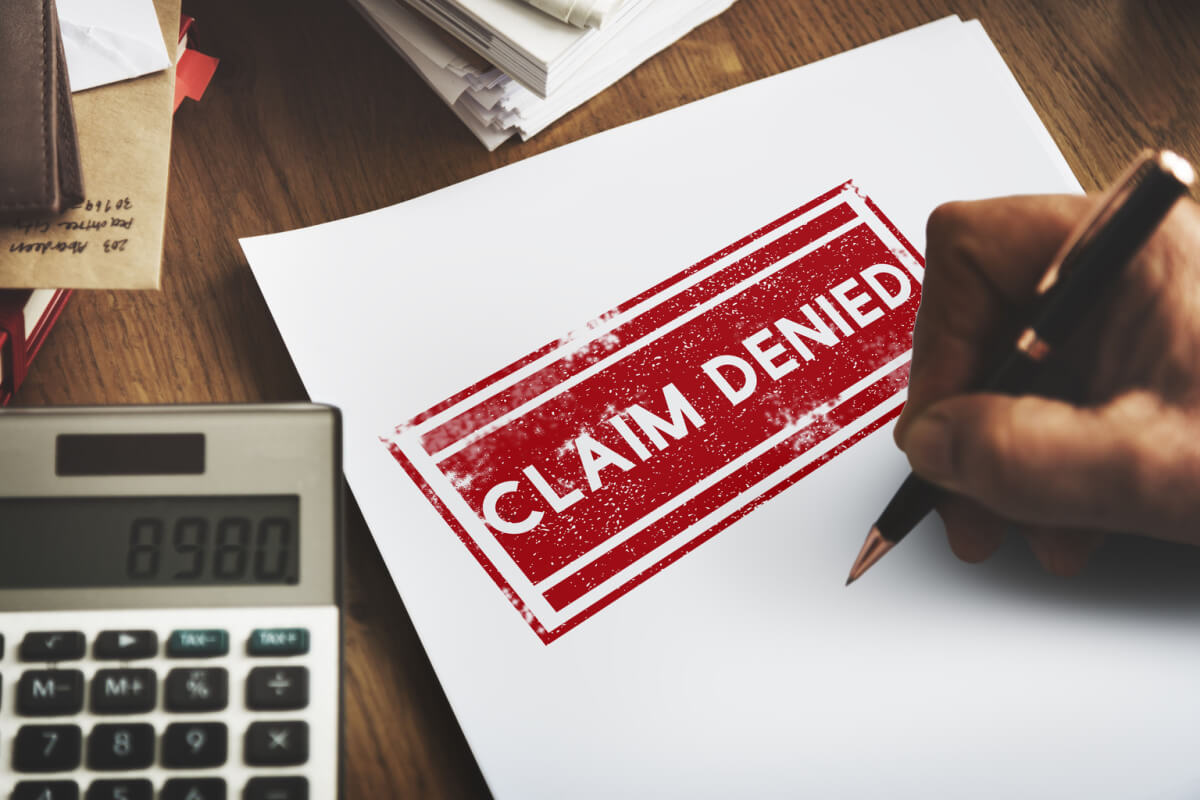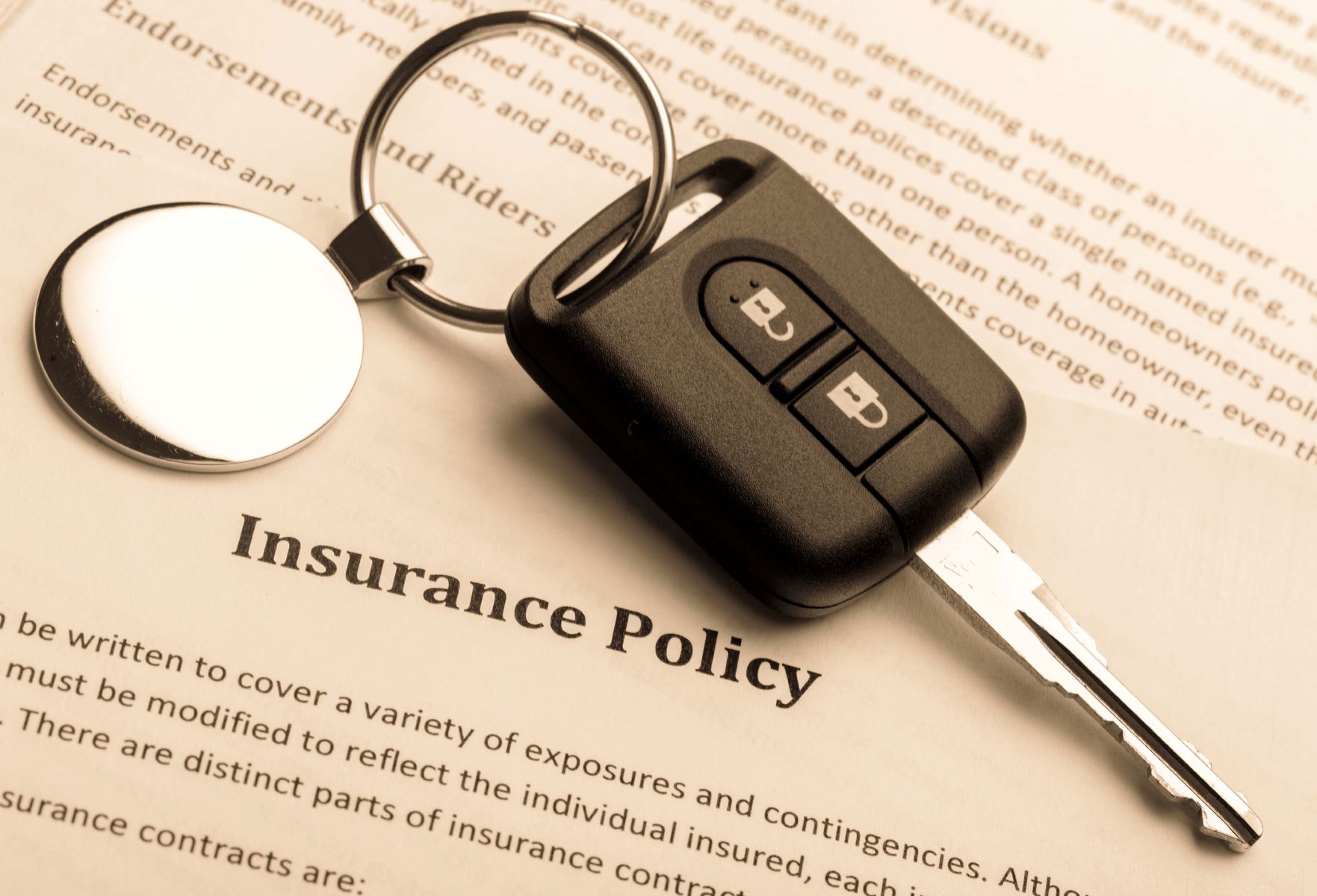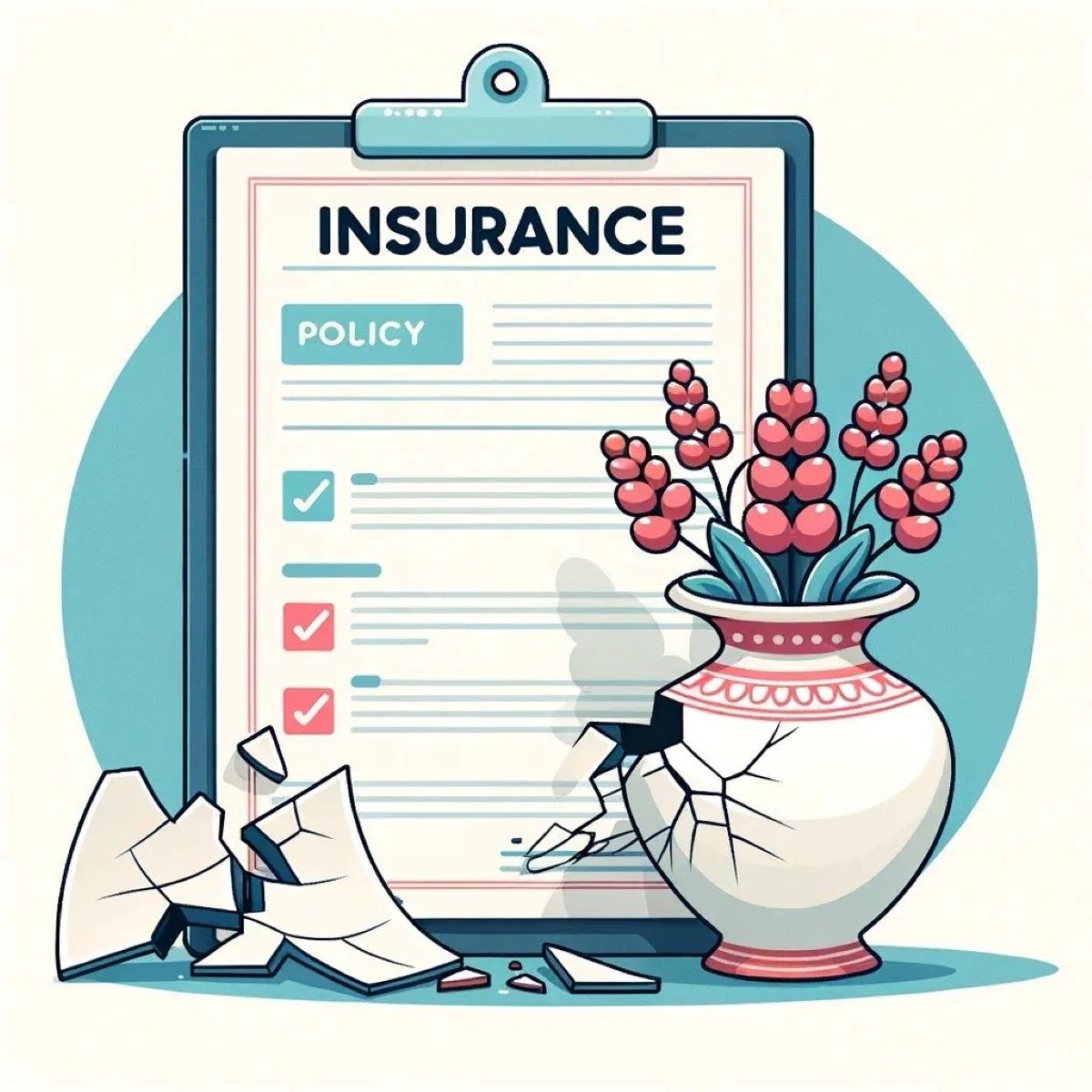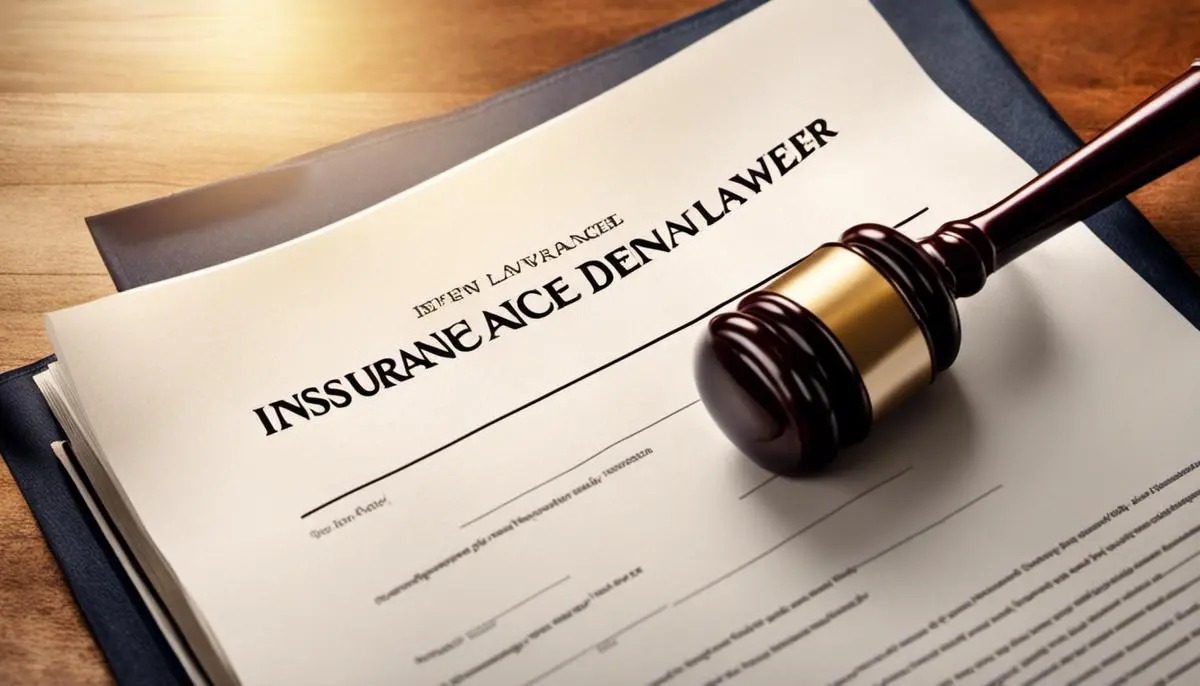

Finance
How To Appeal Car Insurance Claim Denial
Published: November 22, 2023
Learn how to appeal a car insurance claim denial and get the coverage you deserve. Our expert advice can help you navigate the complex world of finance and insurance.
(Many of the links in this article redirect to a specific reviewed product. Your purchase of these products through affiliate links helps to generate commission for LiveWell, at no extra cost. Learn more)
Table of Contents
Introduction
Dealing with a car insurance claim denial can be frustrating. After all, you paid your premiums and expected your insurance company to provide coverage when you needed it. However, claim denials are not uncommon in the insurance industry. Understanding why a claim is denied and how to appeal the decision can help you navigate this complex process and potentially reverse the denial.
When you file a car insurance claim, you expect your insurer to investigate the incident and provide compensation based on the terms of your policy. However, insurance providers have certain criteria and conditions that must be met to approve a claim. In some cases, claims may be denied due to misunderstandings, policy exclusions, lack of evidence or other factors. Regardless of the reason, it’s important to know your rights and options when facing a claim denial.
In this article, we will explore the common reasons behind car insurance claim denials and discuss the steps you can take to appeal a denial. We will also address the importance of gathering necessary documents and information, preparing a persuasive appeal letter, and exploring alternative dispute resolution options. By understanding the appeal process and taking the necessary actions, you can potentially recover the compensation you rightfully deserve.
It’s essential to keep in mind that insurance policies and regulations can vary, so the appeals process may differ depending on your specific circumstances and jurisdiction. Consulting with an attorney who specializes in insurance claims can provide valuable guidance and increase your chances of a successful appeal.
Now, let’s delve deeper into the reasons why car insurance claims are denied and the necessary steps to take if your claim has been denied.
Understanding Car Insurance Claim Denials
Car insurance claim denials can be baffling and disappointing, especially when you believe that the incident should be covered by your policy. To effectively appeal a denial, it’s crucial to understand the reasons behind insurance claim denials. Here are some common factors that insurance companies may consider when evaluating a claim:
- Policy Exclusions: Insurance policies typically have specific exclusions that outline situations where coverage is not provided. Common exclusions include intentional acts, racing, using your vehicle for commercial purposes, or driving while under the influence of drugs or alcohol. If your claim falls under an exclusion, it is likely to be denied.
- Lack of Documentation: One of the most common reasons for claim denials is insufficient documentation. Insurance companies require specific information and evidence to process a claim. If you fail to provide the necessary documentation, such as a police report, photographs of the damage, or medical records, the insurer may deny your claim.
- Delayed Reporting: Timely reporting of an incident is crucial in the claims process. If you delay reporting the incident to your insurance company, they may question the validity of your claim, leading to a denial. It’s important to inform your insurer as soon as possible after an accident or damage occurs.
- Misrepresentation of Information: Providing false or misleading information when filing a claim can result in denial. Insurance companies thoroughly investigate claims and any discrepancies discovered during the investigation may lead to denial.
- Pre-existing Damage: Insurance policies typically cover unforeseen and accidental damages. If the insurance company determines that the damage existed prior to the incident or was caused by wear and tear, they may deny the claim.
Understanding the potential reasons for claim denials can help you assess the validity of your claim and identify any possible areas of concern. If your claim has been denied, it’s important to take immediate action and initiate the appeals process. The next section will outline the necessary steps to take after a claim denial to maximize your chances of a successful appeal.
Reasons for Car Insurance Claim Denials
When you file a car insurance claim, you expect your insurance company to provide the coverage you’ve been paying for. However, there are several reasons why an insurance provider may deny a claim. Understanding these reasons can help you navigate the claims process and potentially prevent a denial. Here are some common reasons for car insurance claim denials:
- Lack of Coverage: It’s important to carefully review your insurance policy to ensure that the incident you’re filing a claim for is covered. If the specific incident or damage is not included in your policy coverage, the insurance company has the right to deny your claim.
- Deductible: Insurance policies often have a deductible, which is the amount of money you are responsible for paying towards a claim before the insurance company covers the rest. If the cost of damages is below the deductible amount, the insurance company may deny your claim.
- Delayed Reporting: Promptly reporting an incident to your insurance company is crucial. If you fail to report the incident in a timely manner, the insurance company may view it as a breach of policy terms and deny your claim.
- Exclusion Clauses: Insurance policies may have specific exclusions that restrict coverage for certain incidents or circumstances. These exclusions can vary and may include intentional acts, damage caused by certain individuals, or the use of the vehicle for illegal activities. If an incident falls within an exclusion clause, the insurance company is likely to deny the claim.
- Insufficient Evidence: Insurance companies require sufficient evidence to process a claim. This may include police reports, photographs of damages, medical records, or witness statements. If you fail to provide the necessary evidence to support your claim, the insurance company may deny it due to lack of proof.
- Misrepresentation: Providing false or misleading information when filing a claim can result in denial. Insurance companies thoroughly investigate claims, and any misrepresentation discovered during the process can lead to denial.
It is important to thoroughly review your insurance policy, understand the coverage and exclusions, and promptly report any incidents to your insurance company. In the event of a claim denial, it’s crucial to consult with your insurance provider to understand the specific reasons behind the denial. This will enable you to gather the necessary information and take appropriate steps to appeal the denial, which will be discussed in the next section.
Steps to Take After a Claim Denial
Receiving a claim denial from your car insurance company can be disheartening, but it doesn’t necessarily mean the end of the road. There are several steps you can take to potentially reverse the decision and get the compensation you deserve. Here are the key steps to take after a claim denial:
- Review the Denial Letter: Carefully read the denial letter from your insurance company to understand the specific reasons behind the denial. This will help you identify any documentation or information that may have been missing from your original claim.
- Consult with Your Insurance Company: Reach out to your insurance company and discuss the denial with a claims representative. Clarify any questions or concerns, and inquire about any additional evidence or documentation they may require to reconsider your claim.
- Document Everything: Keep a detailed record of all communication with your insurance company, including dates, times, and the names of the representatives you speak with. This information may be invaluable if you need to escalate your appeal or involve legal representation.
- Expert Evaluation: If the denial is based on the insurance company’s assessment of damages, consider getting an independent evaluation from a trusted mechanic or contractor. Their professional opinion can provide additional evidence to support your claim.
- File an Appeal: If you believe your claim was wrongfully denied, submit a formal appeal to your insurance company. Your appeal should clearly outline the reasons why you disagree with the denial and include any additional evidence or information supporting your case.
- Engage an Attorney: If the appeal process becomes complex or your claim involves significant damages, it may be beneficial to consult with an attorney who specializes in insurance claims. They can provide valuable guidance, negotiate on your behalf, and escalate the case if necessary.
- Explore Alternative Dispute Resolution: If your appeal with the insurance company is unsuccessful, consider exploring alternative dispute resolution methods such as mediation or arbitration. These processes can help facilitate a resolution without the need for legal action.
- Know Your Rights: Familiarize yourself with the insurance laws and regulations in your jurisdiction. Understanding your rights as a policyholder can empower you during the claim denial process and ensure that you are treated fairly.
Remember, every insurance claim denial is unique, and the steps you need to take may vary depending on the specific circumstances of your case. Be proactive, thorough, and persistent in your pursuit of a successful appeal. With the right approach and documentation, you may be able to overturn the denial and secure the compensation you rightfully deserve.
Gathering Necessary Documents and Information
When filing an appeal after a car insurance claim denial, it is crucial to gather all the necessary documents and information to strengthen your case. These documents will act as evidence to support your claim and counter any reasons given by the insurance company for the denial. Here are some essential documents and information you should gather:
- Policy Documents: Retrieve a copy of your insurance policy and carefully review the coverage details, exclusions, deductibles, and any other relevant information. This will help you understand the terms and conditions you are entitled to, as well as any limits or restrictions that may have been cited in the denial.
- Claim Documentation: Gather all the paperwork related to your original claim, including any correspondence, estimates, repair invoices, or medical bills. These documents will serve as a foundation for your appeal and validate the damages you are claiming.
- Photographic Evidence: If applicable, provide photographs of the damages incurred, whether it’s to your vehicle or property. These visuals can be powerful evidence and help demonstrate the extent of the damages you’re claiming.
- Witness Statements: If there were any witnesses to the incident, gather their contact information and statements regarding what they saw or experienced. Witness testimonies can add credibility to your claim and corroborate your version of events.
- Police Reports: Obtain a copy of the police report if one was filed at the time of the incident. The report contains important details regarding the circumstances of the incident and can be valuable in supporting your claim.
- Medical Records: If your claim involves injuries, gather all relevant medical records, including doctor’s reports, diagnostic test results, and medical bills. These documents will help substantiate the extent of your injuries and the associated expenses.
- Expert Opinions: If there is any dispute over the extent of damages or the cause of the incident, consider obtaining expert opinions. This could include evaluations from mechanics, engineers, or other professionals who can provide an unbiased assessment of the situation.
- Communication Records: Keep a detailed record of all interactions and communications with the insurance company, including dates, times, and the names of the representatives you spoke with. This documentation can help support your case if there were any discrepancies or issues with the claims process.
Gathering the necessary documents and information is a crucial step in building a strong appeal. Make sure to organize these documents in a clear and logical manner, making it easy for the insurance company to review and consider your case. By providing comprehensive and convincing evidence, you enhance your chances of a successful appeal and may increase the likelihood of receiving the compensation you deserve.
Preparing an Appeal Letter
Writing a compelling appeal letter is crucial when seeking to overturn a car insurance claim denial. The letter should be well-crafted, concise, and persuasive, providing a clear and convincing argument as to why the denial should be reversed. Here are some key steps to help you prepare an effective appeal letter:
- Address the denial: Start by acknowledging the denial in a respectful and professional manner. Clearly state the date of the denial letter and reference any specific reasons provided by the insurance company for the denial.
- Present your case: Summarize the incident and explain why you believe your claim should be approved. Provide a detailed account of the events leading up to the incident, including any relevant facts, supporting evidence, and witness statements.
- Cite policy provisions: Reference the specific provisions in your insurance policy that support your claim. Highlight any language or coverage areas that are relevant to your situation and emphasize how your claim falls within the outlined coverage.
- Dispute the insurance company’s reasons: Review and address each reason given by the insurance company for the denial. Counter any allegations or discrepancies with clear and compelling evidence or arguments to demonstrate that the denial is unfounded.
- Provide new evidence: If you have obtained additional evidence or documentation since the original claim, include it in your appeal letter. This may include expert opinions, updated repair estimates, or any other relevant information that strengthens your case.
- Be clear and concise: Keep your appeal letter focused and to the point. Clearly state your arguments, avoiding unnecessary information or emotional language. Use a polite and professional tone throughout the letter.
- Request a review and reconsideration: Close your appeal letter by explicitly requesting a thorough review of your claim and a reconsideration of the denial. Leave contact information for the insurance company to reach you with any questions or requests for additional information.
- Follow up: After sending your appeal letter, follow up with the insurance company to ensure they have received it and to inquire about the status of your appeal. This demonstrates your commitment and can help keep your case on their radar.
Remember to keep copies of all documents and correspondence related to your appeal. This includes the appeal letter itself, as well as any responses received from the insurance company. If your appeal is not successful, consult with an attorney who specializes in insurance claims to explore further legal options.
By preparing a well-structured and persuasive appeal letter, you give yourself the best chance of reversing the denial and obtaining the compensation you are entitled to.
Submitting the Appeal
Once you have prepared your appeal letter and gathered all necessary supporting documents, the next step is to submit your appeal to the insurance company. Here are some key considerations and steps to follow when submitting your appeal:
- Follow the instructions: Review the denial letter and any accompanying instructions provided by the insurance company. Ensure that you have followed all the specified requirements for filing an appeal, such as the deadline for submission and the preferred method of communication.
- Compile your appeal package: Organize all your appeal materials, including your letter, supporting documents, and any additional evidence, into one comprehensive package. Make copies of everything for your own records.
- Address the appeal: Use the appropriate mailing address or email address provided by the insurance company to submit your appeal. If sending by mail, consider using certified mail with a return receipt to track the delivery and ensure it reaches the intended recipient.
- Include a cover letter: Consider including a cover letter or a brief summary sheet outlining the contents of your appeal package. This can serve as a helpful reference for the insurance company when reviewing your materials.
- Keep records of communication: Maintain a record of the date and method of submission of your appeal. If submitting electronically, keep a copy of any email correspondence or confirmation of receipt from the insurance company.
- Request acknowledgement: It is advisable to request an acknowledgement of receipt from the insurance company. This ensures that they have received your appeal and that it is being processed. This can also be useful for tracking purposes and as proof of timely submission.
- Follow up: After submitting your appeal, it’s important to follow up with the insurance company to inquire about the status of your case. Request updates on the review process and any additional information or documentation they may require.
- Be patient and persistent: Appeals can take time, so it’s important to be patient during the process. Understand that it may require multiple rounds of communication and evidence submission. Stay persistent and continue advocating for your case until a resolution is reached.
Remember, every insurance company has its own policies and procedures for handling appeals. Familiarize yourself with their specific guidelines and requirements to ensure that your appeal is properly submitted and considered. Consider consulting with an attorney who specializes in insurance claims to provide guidance and support throughout the appeals process.
Submitting a well-organized and comprehensive appeal package increases your chances of a successful outcome. By following these steps and maintaining open communication with the insurance company, you are taking proactive measures to fight for a favorable resolution to your claim denial.
Working with an Attorney
When facing a car insurance claim denial, working with an experienced attorney who specializes in insurance claims can be invaluable. An attorney can provide expert guidance, advocate on your behalf, and navigate the complex legal aspects of the appeals process. Here are some key considerations when deciding to work with an attorney:
- Evaluate the complexity of your case: If your claim denial involves significant damages, disputes over liability, or complex legal issues, it may be beneficial to consult with an attorney. They can assess the intricacies of your case and provide valuable advice on the best course of action.
- Expert advice and knowledge: An attorney specializing in insurance claims understands the intricacies of insurance policies and regulations. They have experience dealing with insurance companies and can provide expert advice on the strongest arguments and strategies for your appeal.
- Legal representation: If your appeal requires legal action, an attorney can represent you in negotiations and potentially file a lawsuit on your behalf. They will have the knowledge and resources to handle the legal proceedings and advocate for your rights in court if necessary.
- Negotiation and settlement: Attorneys are skilled negotiators who can effectively communicate with insurance companies and work towards a fair settlement. They will fight for your best interests and ensure that you are not taken advantage of during the appeals process.
- Save time and reduce stress: Dealing with a denied insurance claim can be overwhelming, especially if you are unfamiliar with the appeals process. By working with an attorney, you can offload the legal burden onto a professional, allowing you to focus on other important matters while they handle your case.
- Alternative dispute resolution: If negotiations with the insurance company are unsuccessful, an attorney can explore alternative dispute resolution methods such as mediation or arbitration to seek a resolution outside of court. They will guide you through the process and advocate for your best interests.
- Contingency fee arrangement: Many insurance claim attorneys work on a contingency fee basis, which means they only get paid if they are successful in recovering compensation for you. This arrangement can help alleviate financial concerns and ensure that your attorney is motivated to achieve a positive outcome.
- Access to resources and experts: Attorneys have access to a network of professionals, such as accident reconstruction experts or medical specialists, who can provide additional support and bolster your claim.
When choosing an attorney, consider their experience and track record in handling insurance claims. Look for someone who specializes in the type of claim you are dealing with and has a strong reputation for successfully resolving similar cases.
Working with an attorney can level the playing field when dealing with insurance companies and maximize your chances of a successful appeal or settlement. They will navigate the complex legal processes and fight for the compensation you rightfully deserve.
Alternative Dispute Resolution
If your appeal with the insurance company is not successful or you are unable to reach a resolution through negotiations, alternative dispute resolution (ADR) methods can provide an alternative to resolving your car insurance claim denial. ADR offers a way to settle disputes outside of the traditional court system, offering several benefits to policyholders:
- Mediation: Mediation is a voluntary process where a neutral third party, the mediator, helps facilitate negotiations between the policyholder and the insurance company. The mediator does not make decisions but assists in finding common ground and reaching an agreement satisfactory to both parties.
- Arbitration: Arbitration involves presenting your case to an impartial arbitrator or a panel of arbitrators who review the evidence and make a binding decision. This process is similar to a simplified version of a trial, but it is less formal and typically faster. The decision made by the arbitrator is final and legally binding.
- Benefits of ADR: ADR methods are known for their efficiency, as they generally offer a quicker resolution compared to going through the court system. They also tend to be less adversarial, allowing for more cooperative discussions and potentially preserving relationships.
- Choosing ADR: Depending on your insurance policy, there may be provisions that require or suggest the use of ADR methods before pursuing litigation. Review your policy carefully to determine if ADR is a mandatory or recommended step in dispute resolution.
- Consulting with an attorney: It is advisable to consult with an attorney who specializes in insurance claims before engaging in any ADR process. They can provide guidance on the advantages and limitations of each method and help you prepare a strong case.
- Protecting your rights: While ADR is generally less formal than court proceedings, it is still important to present a strong case and protect your rights. Work closely with your attorney to gather all relevant evidence, prepare arguments, and present your case effectively during the ADR process.
- Enforcing the decision: Once a resolution is reached through ADR, it is essential to ensure that the terms are documented and enforceable. It’s important to review any settlement agreement carefully before signing and understand the implications and limitations of the agreement.
Alternative dispute resolution provides a viable option for resolving car insurance claim denials without the need for lengthy and costly litigation. However, it’s important to consider the specific circumstances of your case and consult with an experienced attorney who can guide you through the ADR process and help you achieve a fair resolution.
Final Thoughts
Dealing with a car insurance claim denial can be a frustrating and challenging experience. However, it’s essential to remember that a denial does not necessarily mean the end of the road. By understanding the reasons for denials, gathering the necessary documents, and taking proactive steps, you can increase your chances of successfully overturning the denial and receiving the compensation you deserve. Here are some final thoughts to keep in mind:
Know your policy: Familiarize yourself with your insurance policy, including the coverage details, exclusions, deductibles, and any other important provisions. Understanding your policy will help you assess the validity of your claim and identify any potential issues in the appeals process.
Document everything: Keep a detailed record of all communication with your insurance company, including phone calls, emails, and letters. Maintain copies of all documents related to your claim, such as estimates, invoices, and medical records. These records will be invaluable when filing an appeal or seeking legal assistance.
Be proactive: Take immediate action after receiving a claim denial. Review the denial letter carefully, consult with your insurance company to address any concerns or disputes, and gather any additional evidence or information required to support your claim. Timely and thorough action can strengthen your case and improve your chances of a successful appeal.
Consider legal representation: If your claim denial is complex or involves significant damages, it may be wise to consult with an attorney who specializes in insurance claims. An attorney can provide expert guidance, negotiate on your behalf, and escalate the matter if necessary. Their knowledge and experience can greatly enhance your chances of reversing the denial.
Explore alternative dispute resolution: If traditional negotiation with the insurance company is unsuccessful, consider alternative dispute resolution methods such as mediation or arbitration. These options provide a chance to reach a resolution outside of court and can be more efficient and cost-effective than litigation.
Stay persistent: Overcoming a claim denial can be a lengthy and intricate process. It requires patience, persistence, and determination. Remain focused on your goal, gather all necessary evidence, follow up with the insurance company, and stay proactive throughout the appeals process.
Remember, every insurance claim denial is unique, and there are no guarantees of success. However, by understanding your rights, gathering evidence, and seeking appropriate legal assistance, you can improve your chances of a favorable outcome. Don’t be discouraged by a denial – use it as motivation to fight for what you believe is rightfully yours.














